CHEA Vatana
Former Research Associate
Email : NA


While digital transformation around the globe has significantly gained momentum and speed, embracing technologies in our daily life is now beyond question. In this regard, we need to ask whether or not individuals are ready to accept and use technologies when provided and what really affects one's technology readiness. The main objective of this st...
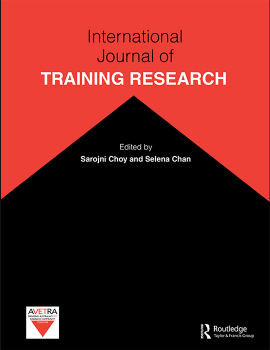
Understanding what determines a worker’s passion for skills training has important policy implications, particularly in the current context of the fourth industrial revolution, in which knowledge is deemed obsolete within several years. The purpose of this study is to answer a specific question: are higher-ability garment workers more likely to eng...
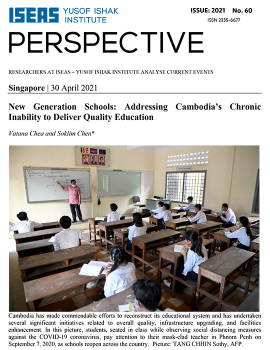
In recent years, the Cambodian government has introduced a reform agenda to enhance the quality of teaching and learning, improve the bureaucratic administration of education, and address other major challenges affecting public schools. The new agenda has led to several remarkable transformations in Cambodia’s educational system, including the intr...
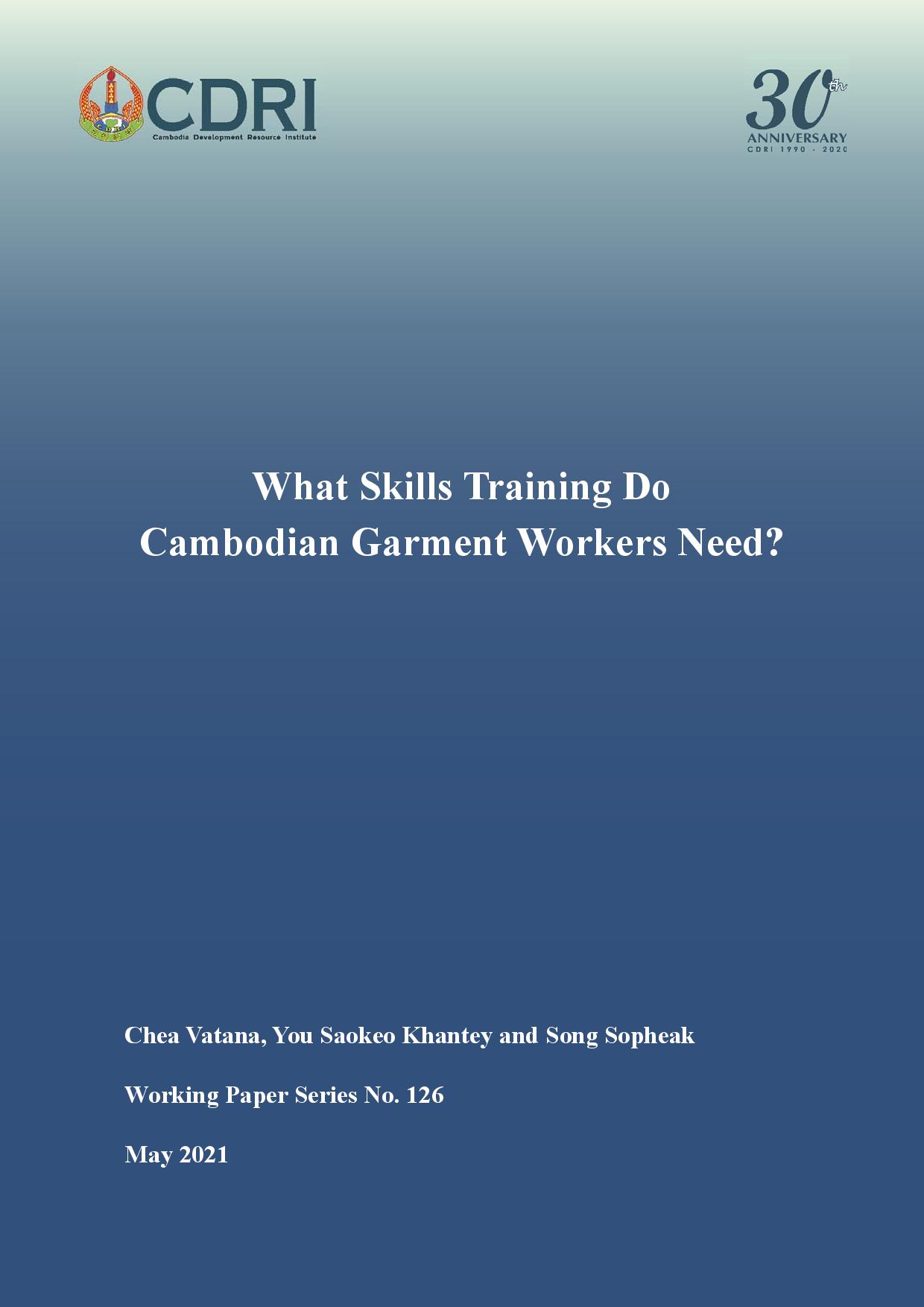
This study aimed to identify the current skills of Cambodian garment workers, whether or not they wanted to gain new skills and, if so, what those were. The results revealed that the greatest percentage – 60 – had acquired sewing skills, followed by quality control and packaging skills. More than two-thirds were also able to read, write and calcula...
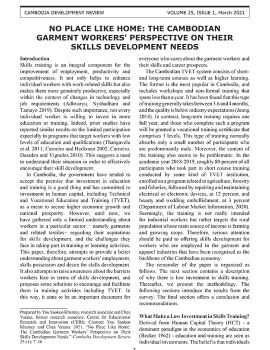
Developing skills for current workforce is indispensable in today’s economy. In an attempt to promote investment in skill training for workers in a Cambodian backbone sector, namely garment and textile, this study explores and identifies the problem of underinvestment in their skill training. A total of 787 individual workers are randomly selected...
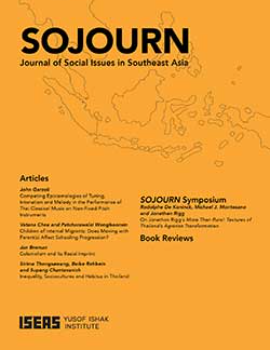
Using the 2011 Cambodia Rural-Urban Migration Project, we re-examine the effect of parental migration on the long-term educational progress of children who have accompanied their parents to urban areas by comparing such children with those left behind in rural areas. We use a measurement that captures schooling disruption effect and allows for the...
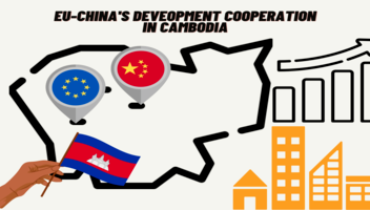
In this context of promoting Cambodia’s Sustainable Development Goals and aid effectiveness, and with the aim to inform the preparation of the next Joint European Strategy 2020-2024, European partners in Cambodia agreed to conduct an analysis on European and Chinese development cooperation portfolio in Cambodia. The study is to give an overview of...
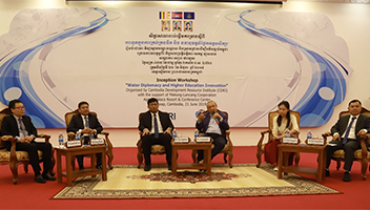
With a steady economic growth hovering between 7-8 percent over the past two decades, Cambodia achieved a lower-middle-income in 2015. Building on this progress, the government aspires to become an upper-middle-income country by 2030 and a high-income country by 2050. Several key issues need to be urgently addressed if Cambodia is to realise the a...

Cambodia has achieved strong growth in the past two decades, and the country has graduated to lower-middle-income status with a per capita income of about USD1,215 (2015). A feat that neighbouring Vietnam achieved in 2010 and Laos in 2011. Building on this achievement, Cambodia aspires to become an upper-middle-income country by 2030 and a high-inc...
